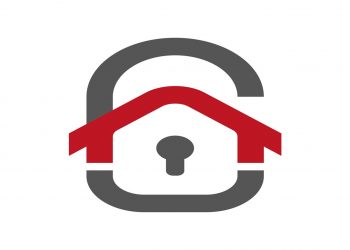 RISMEDIA, January 15, 2010—It’s official: We survived 2009. But you’re probably not spinning around in your office chair, throwing confetti in the air to celebrate. That’s because though you may have survived, 2009 was an especially difficult year for business. And one major business casualty in the last year was customer-business trust. Damaged by the Madoffs, AIGs, and GMs of the world and forced by a down economy and growing unemployment to pinch every penny, many customers are simply finding it difficult to hand their trust over to those with whom they do business.
RISMEDIA, January 15, 2010—It’s official: We survived 2009. But you’re probably not spinning around in your office chair, throwing confetti in the air to celebrate. That’s because though you may have survived, 2009 was an especially difficult year for business. And one major business casualty in the last year was customer-business trust. Damaged by the Madoffs, AIGs, and GMs of the world and forced by a down economy and growing unemployment to pinch every penny, many customers are simply finding it difficult to hand their trust over to those with whom they do business.
“After all the debacles of 2009, people want to know who they are doing business with,” explains Maribeth Kuzmeski, author of The Connectors: How the World’s Most Successful Businesspeople Build Relationships and Win Clients for Life. “Relationships are more important than ever, particularly when it comes to doing business. And thanks to social media, mobile technology, and the ever-expanding Internet, it’s easier than ever to connect with others.
Kuzmeski offers the following tips on how you can make more meaningful connections in the coming months.
Improve your social networking skills. In today’s business world, social networking can’t be ignored. We promote products on Facebook, network through LinkedIn, and get our news updates via tweets on Twitter. And while social networking is a great way to connect, it can be easy to forget that what you’re aiming for are meaningful connections. And making meaningful connections via social media can sometimes take a little extra work and a different approach. Kuzmeski says that using a few simple rules of thumb can help make your social networking more efficient.
Remember: It’s quality, not quantity. While the connections you make through social media are important—especially when you can transform those connections into relationships—you have to be careful not to get caught up in a more, more, more mentality, where you are constantly striving to get more friends on Facebook or to tweet more often during your day.
Be a voicemail non-conformist. If you’ve worked in business for any amount of time, then you’ve probably played a game or two of phone tag. When we attempt to connect with people over the phone, we’re usually faced with having to leave a voicemail. But just because you’re connecting with a voice mailbox doesn’t mean your connection can’t also be meaningful. Kuzmeski says that learning how to make the most of those voicemail messages can also help boost your connections.
Build your own “Harvard Network.” People who have gone to Ivy League schools like Harvard typically look out for one another. They connect with each other, hire each other, and refer potential clients to one another. The same can be said for many of the most high-status schools in the nation. It may even be true that these alumni networks are more valuable and important to the success of graduates than the education they received.
Create your powerful connections list. In order to form new and more powerful relationships, it’s a good idea to first begin by determining who are, and who can potentially become your most powerful connections. Ask yourself: Who do I need to be able to connect with to build my business successes?
Leverage your connections. Effectively leverage your business network by creating a large enough network, regularly staying in touch with them, and helping them get to know you, what you do in your business, and the kinds of people you work with. But most of all, concentrate on getting to know them and developing a relationship focused on them.
True connections happen eye to eye. Just because there are a lot of new and improved ways to connect with people, it doesn’t mean we should rule out good old-fashioned face-to-face contact. Sure, social networking is great, and when used the right way, it can be a great tool for you and your business. However, if you want to really connect with people, it is important to make it a priority to schedule face time.
Make amends when you mis-connect. It’s bound to happen at some point: You send an email about a client (intended for one of your employees) to the client. Or you tweet something that at the time seemed funny and edgy, but instead offended a few of your followers. Or you forget to follow up on a referral you’ve received because it got lost in your email inbox for three months. What do you do? Mark these connections down as technology casualties and move on?
Kuzmeski says that option is a big mistake. She says that whenever you’ve made a mistake—online or otherwise—you should take immediate action to rectify the situation. Take down the offending tweet, send out an online apology, and certainly pick up the phone to apologize personally.
About the Author
Maribeth Kuzmeski is the founder of Red Zone Marketing, LLC, which consults to Fortune 500 firms on strategic marketing planning and business growth.










